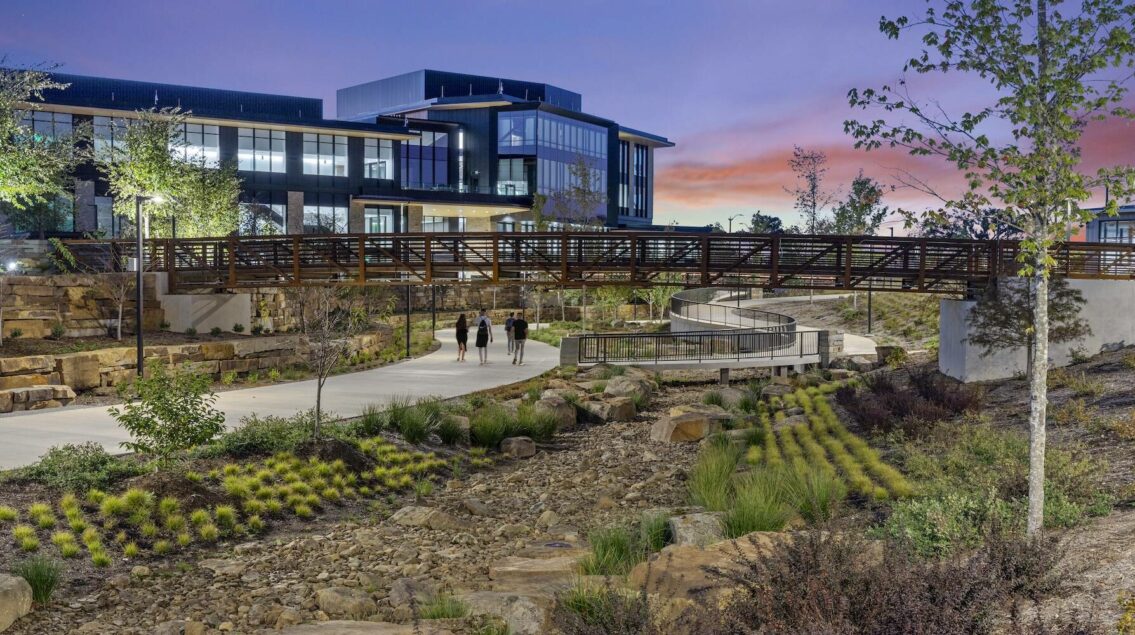✕
The small Arkansas town of Bentonville and its neighboring towns have become a collective hotbed of upscale architecture in recent years, thanks in part to the generosity of the Northwest Arkansas Design Excellence Program, which attracts talented practitioners to the region from across the country – still home to AIA gold medalist Fay Jones and his eponymous architecture school – for high-profile public commissions.
The concept of good design appears to have ignored Walmart's longtime Bentonville headquarters, whose private family foundation funds the Design Excellence Program. Nondescript, dated and windowless, the 1970s home office of the region's – and the world's – largest private employer is an unforgettable relic that evokes the mega-retailer's frugal, no-frills roots. This is especially true when comparing Walmart headquarters to other major American corporate campuses that have been renovated to emphasize on-site amenities, employee well-being, flexibility, and connectivity between indoor and outdoor spaces.
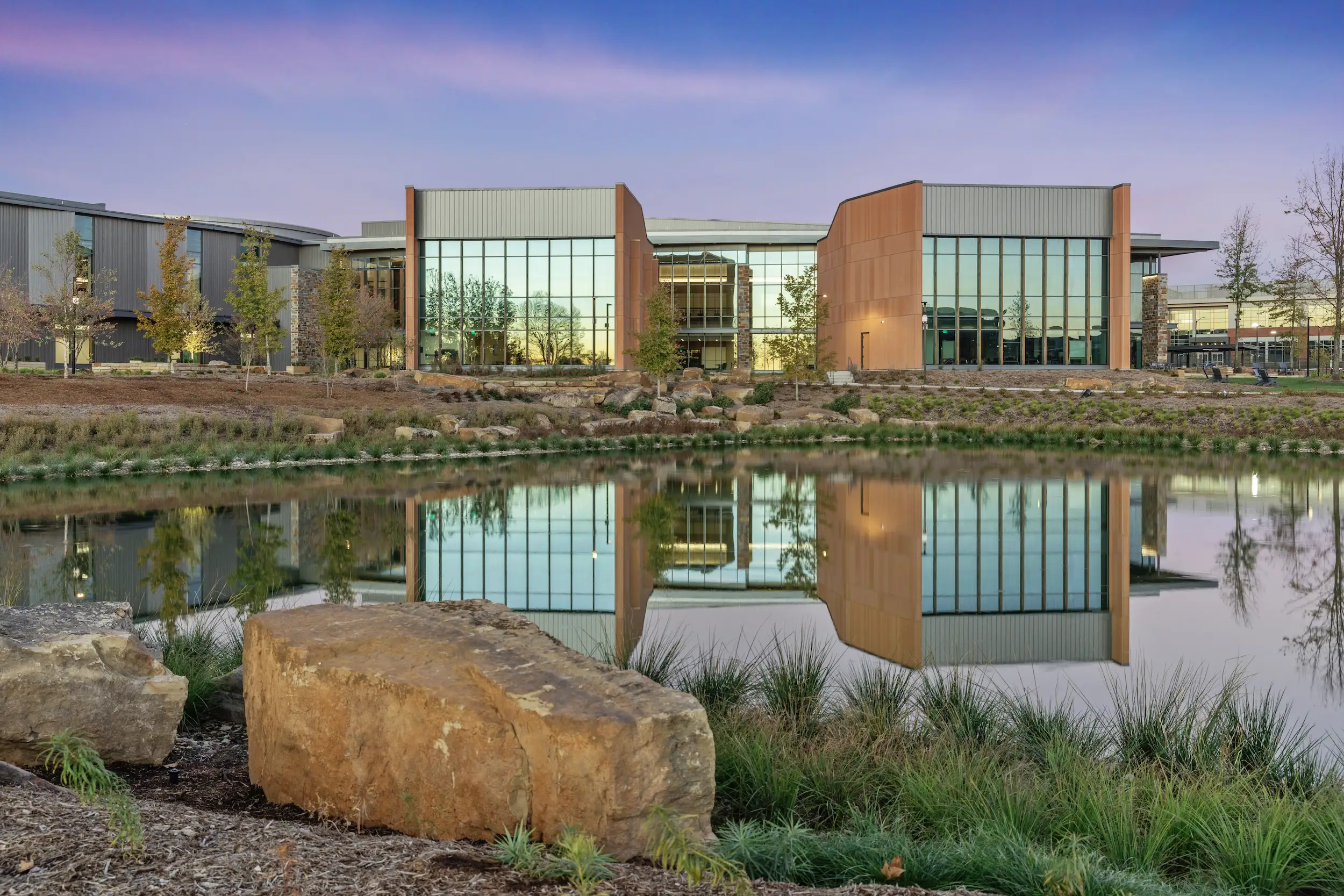
In keeping with the surrounding Ozark landscape, the campus features several man-made lakes capable of treating up to 12 million gallons of rainwater annually. Photo by David Lloyd, SWA
However, Walmart's presence in Bentonville has entered a new era as the company celebrates the opening of its significantly improved work-from-home campus, a project co-led by Gensler and SWA. With demolition and infrastructure work first beginning at the site in 2019, its (partial, phased) debut precedes several other major projects in fast-growing Bentonville scheduled to open later this year and next, including three projects led by Walmart heiress Alice Walton: an expansion of the Moshe Safdie-designed Crystal Bridges Museum of American Art (also run by Safdie's firm), the Alice L. Walton School of Medicine (Polk Stanley). Wilcox and OSD) and the Heartland Whole Health Institute (Marlon Blackwell Architects). The renovated Walmart Museum in the old Walton's 5&10 variety store on Bentonville's town square is also scheduled to open this year.
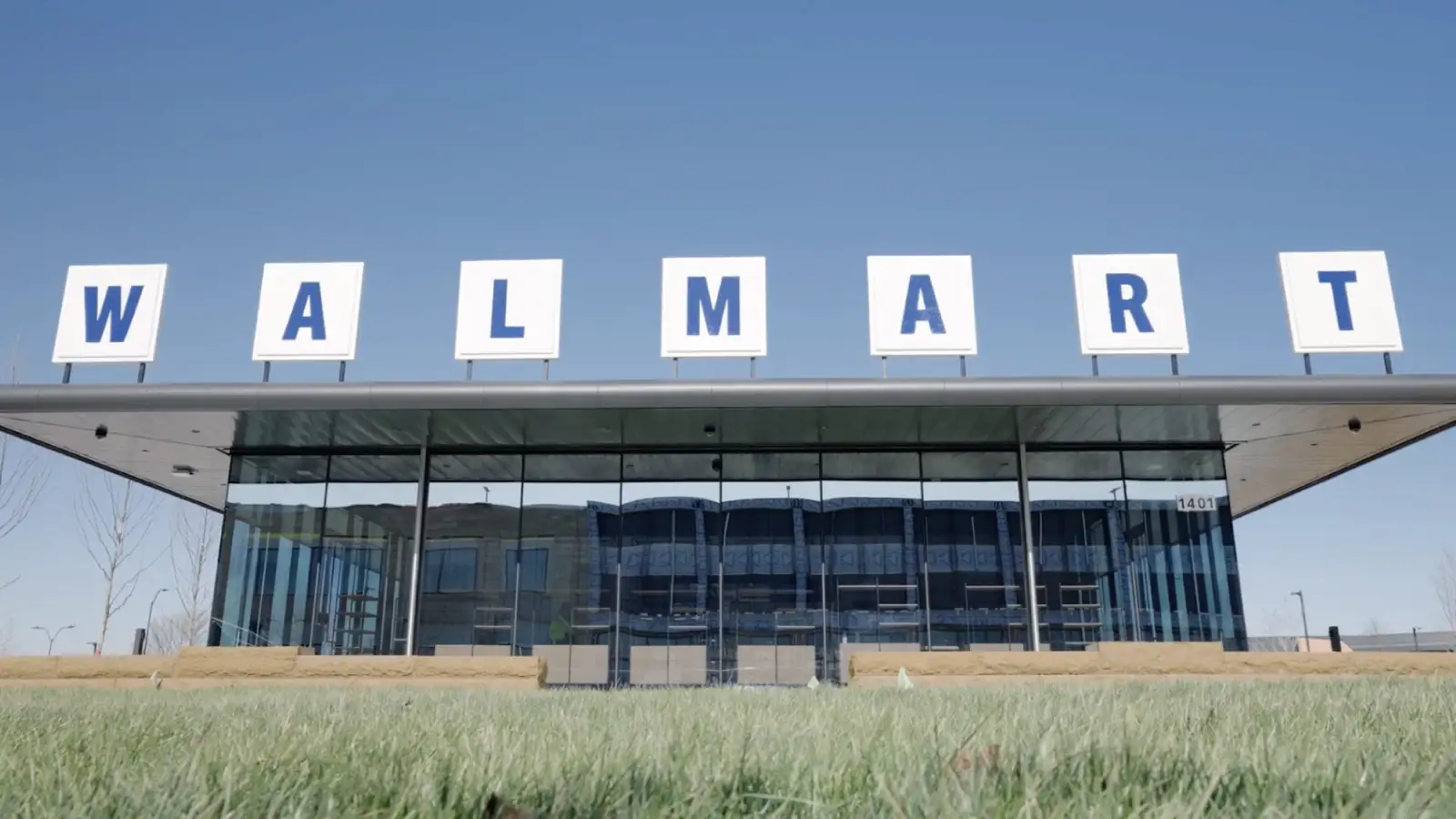
Exterior view of the Campus Welcome Center pavilion. Photo courtesy of Walmart
Located several miles from the company's cramped, brick-lined old headquarters, the new campus includes an unused site adjacent to Bentonville's historic Third Street district, previously occupied by several Walmart warehouses and support buildings. The new campus – “built by employees for employees” – spans 350 acres of densely forested land and showcases mass timber construction and the region’s natural beauty.
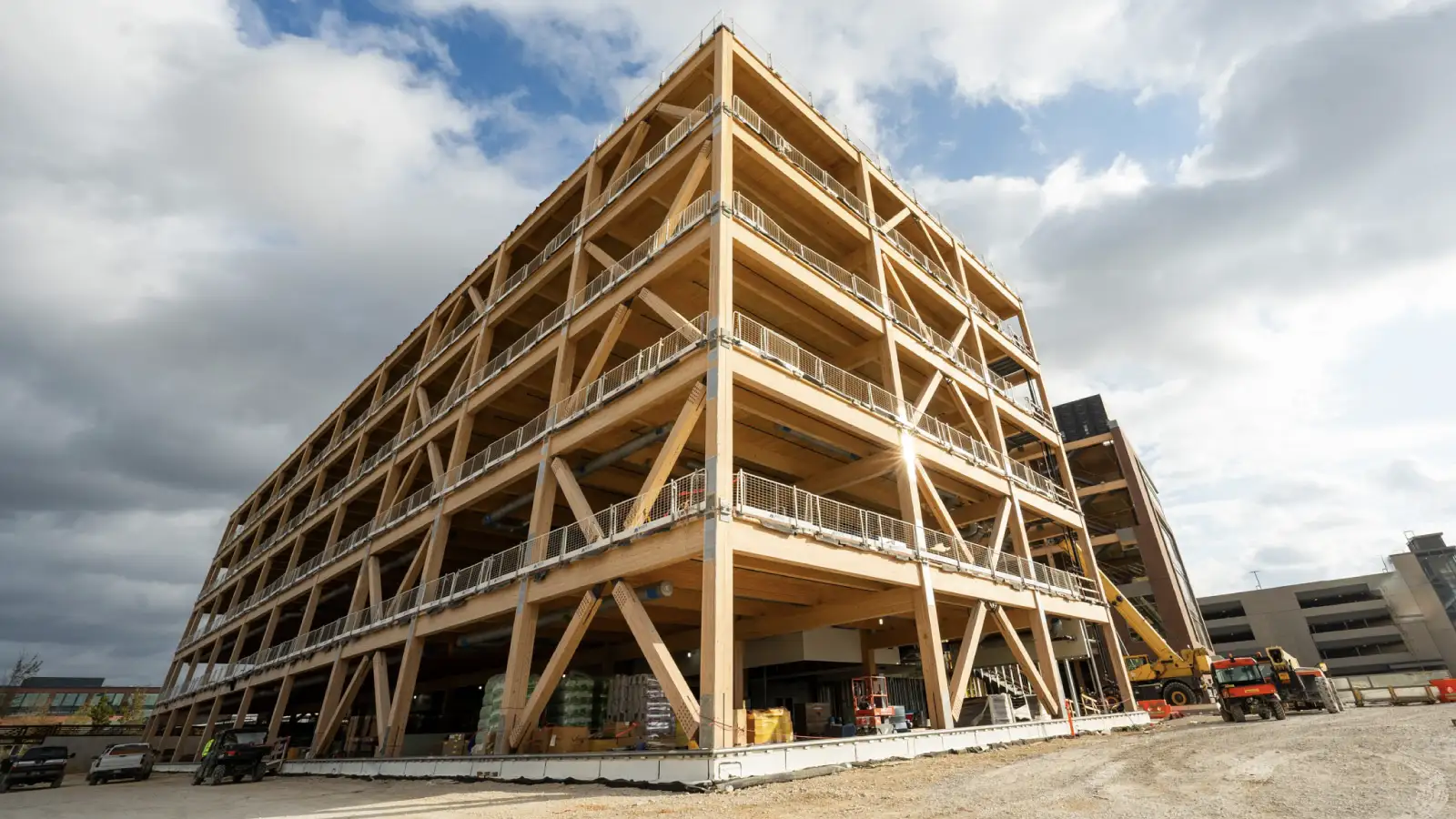
1

2
There are several solid wood structures on campus, one of which is under construction here (1), and a large outdoor performance space called Helen's Amphitheater (2). Photos courtesy of Walmart
The sprawling complex's dozen office buildings, the first two of which are now open, are constructed primarily of mass timber, including 1.7 million cubic feet of locally sourced wood, according to Gensler. (The firm served as the design architect of the office buildings and executive architect of the overall campus design.) With 2.4 million square feet of solid wood office space, the project is considered the largest campus project of its kind in the United States. The LEED Platinum-rated solid wood office buildings are based on numerous sustainable design strategies, are powered entirely by renewable energy, and feature highly efficient HVAC and lighting systems. Gensler's collection of office buildings is joined by numerous other buildings: a large stand-alone health and fitness center that opened in front of the larger campus, a 73,000-square-foot daycare center, a 12-vendor food hall, a Marriott-operated hotel, a welcome pavilion, and several Parking garages. The centerpiece of the campus is Sam Walton Hall, a 200,000-square-foot corporate training and conference center designed by local firm Miller Boskus Lack Architects and features a 1,500-seat auditorium. Directly adjacent to the hall is Helen's Amphitheater, a terraced outdoor venue.
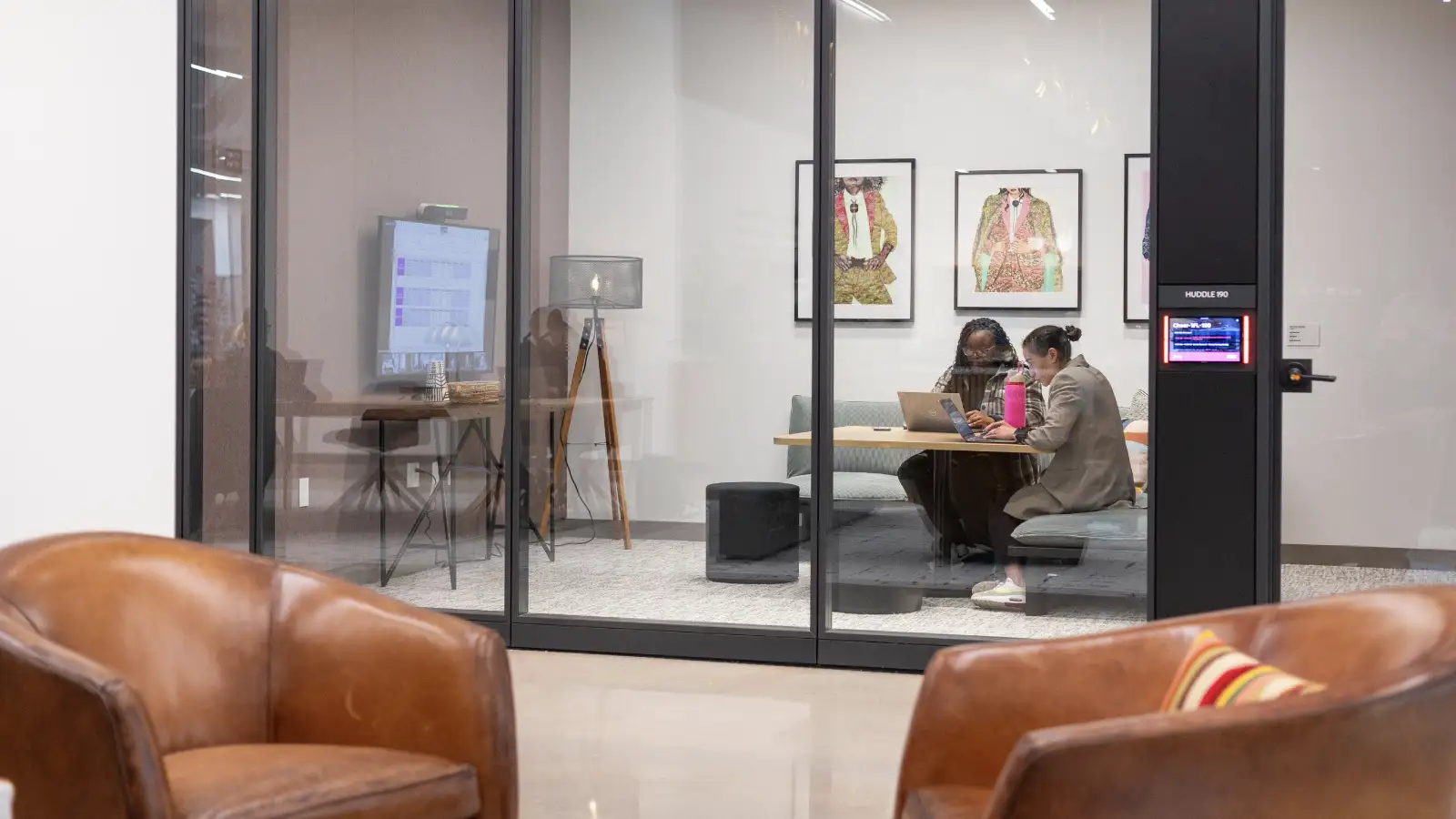
3

4
An associated workspace (3) and lobby (4) in the Cheer Building, one of 12 Gensler-designed office buildings on campus. Photos courtesy of Walmart
The home office's so-called “Big Nature” landscape plan developed by SWA brings the rugged appeal of the nearby Ozark Mountains to Walmart's front yard. Designed to “dissolve the boundaries between new facilities and the surrounding landscape,” key features of the campus include 115 acres of native and adaptive plantings, 13 acres of lakes and bioswales at the north and south ends of the site that help with stormwater management , and a one-mile forested greenway that bisects the campus and connects it to the Razorback Regional Greenway and the Town Branch Trail, which provides a direct connection to downtown Bentonville offers. Given the obvious popularity of cycling in and around the city, the campus also features a nearly 7-mile network of multi-modal, soft-surface and paved trails. There are also 1,000 bicycle parking spaces. (A somewhat small number considering that the campus was built to accommodate 15,000 Walmart employees on-site daily, about half of whom live within 5 miles of the new headquarters.)
“Like many others, we have spent the last few years seeking solace in nature, finding extraordinary beauty in the landscapes where the Ozarks merge into the lowland hills,” SWA co-CEO Gerdo Aquino said in a statement. “That was really our starting point: conveying feelings of rootedness, authenticity and home by incorporating these ecosystems into the design.”
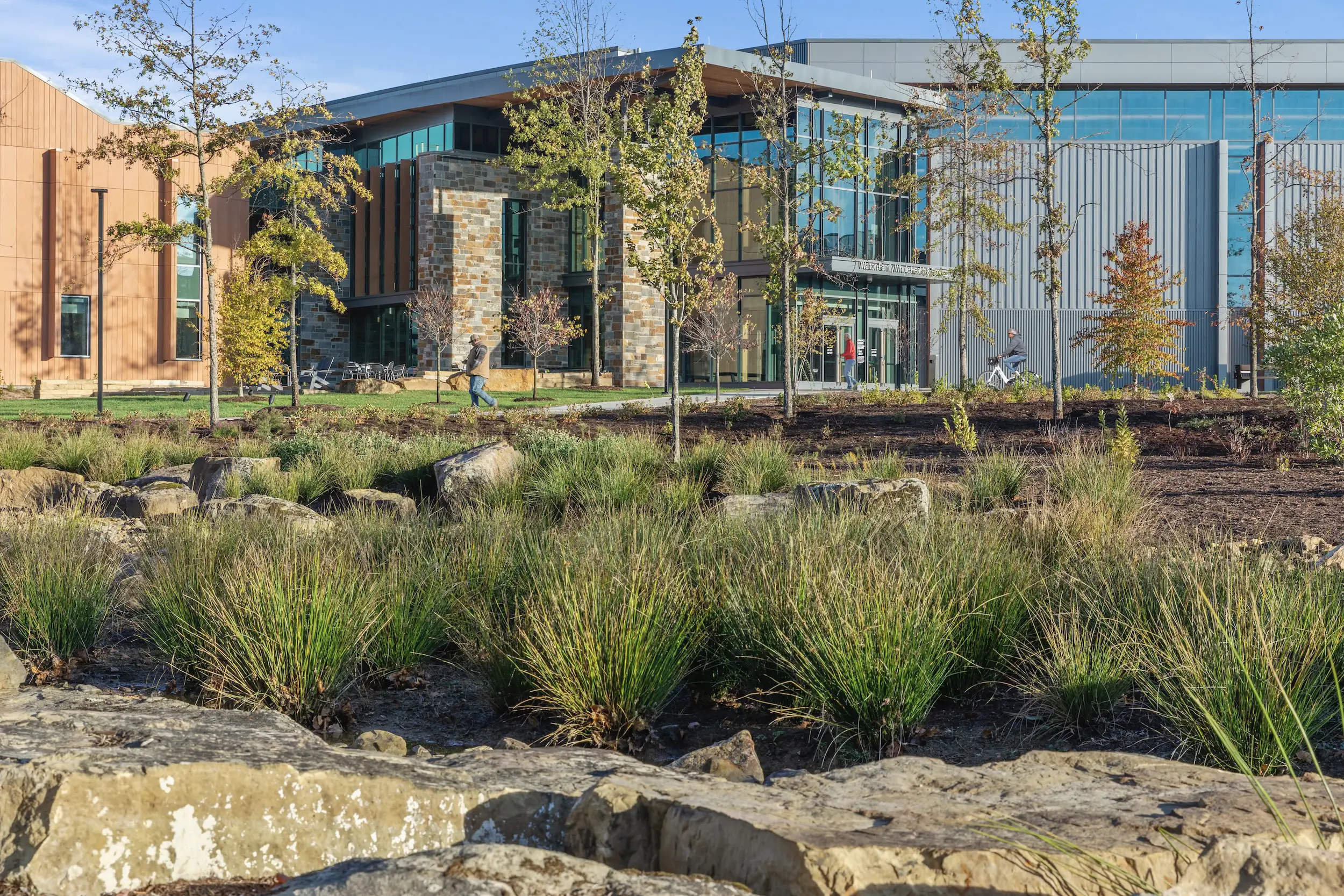
5
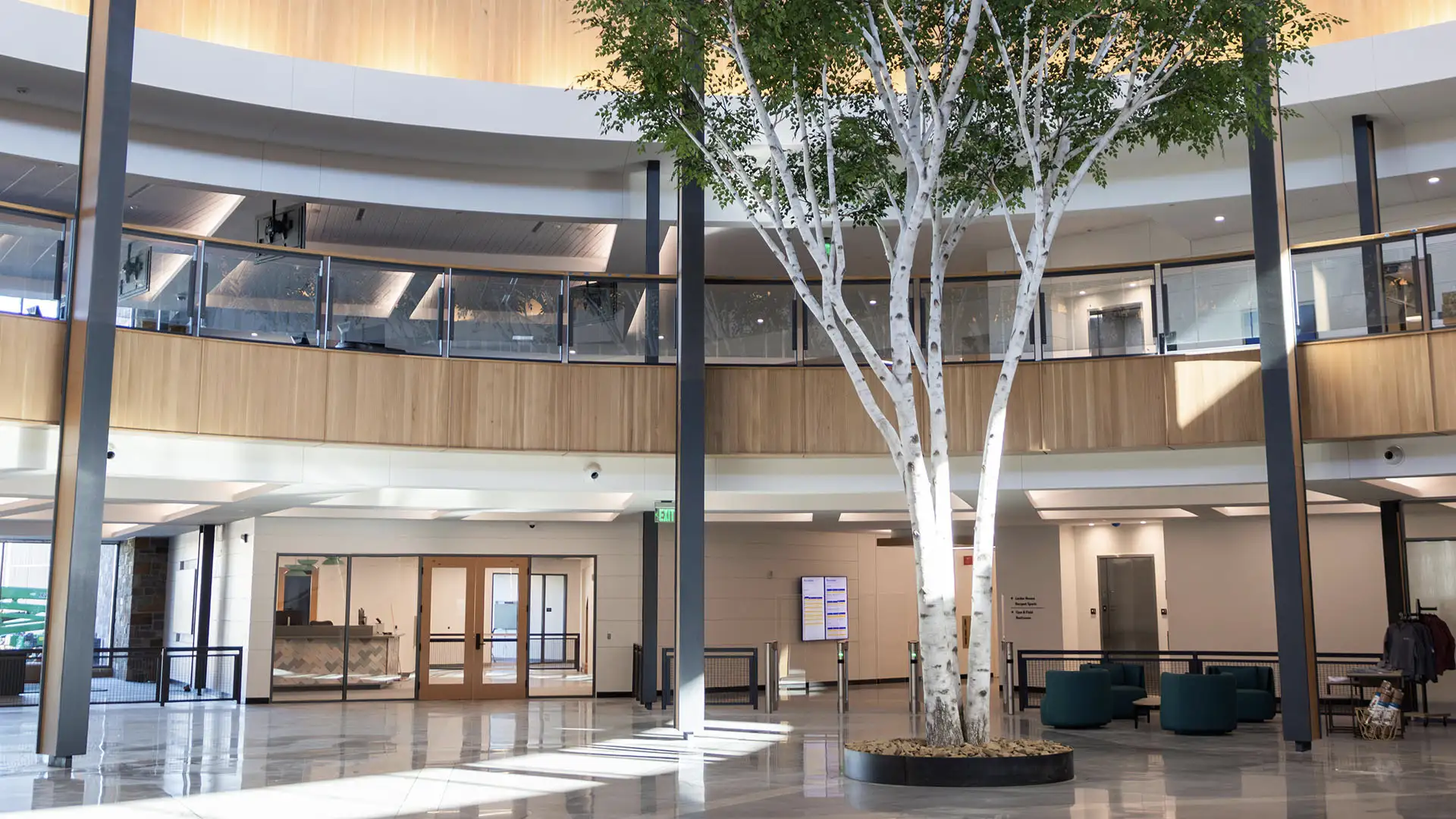
6
The main entrance (5) and central rotunda (6) of the Walton Family Whole Health and Fitness facility, the first of numerous facilities on campus to open. The 360,000-square-foot building was designed by North Carolina-based Duda|Paine Architects. Photos by David Lloyd, SWA (5) and courtesy of Walmart (6)
At this point, it is not clear what future renovations the old Walmart home office might entail following its full evacuation and the phased opening of the new campus. What is certain is that it will stay in the family. In 2022, the property was acquired for $60 million by the real estate development arm of a holding company led by Steuart and Tom Walton, the grandsons of Walmart founder Sam Walton. The company did not disclose the cost of the new home office, which will be open year-round.
